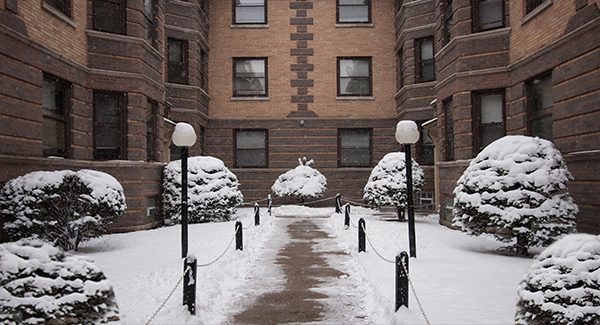Chicago winter months are known for below freezing temperatures and bitter cold wind chills. After being outside in the cold weather, the last thing you want to discover is your tenant does not have heat in the apartment or condominium building.
Chicago Heating Ordinance and RLTO
From September 15th through June 1st, the Chicago Heating Ordinance mandates that landlords must:
- Maintain a temperature of 68 degrees from 8:30 am to 10:30 pm
- Maintain a temperature of 66 degrees from 10:30 pm to 8:30 am
This applies to rental units/buildings with some exceptions.
Like electricity and running water, heat is considered an essential service that must be provided by landlords according to the Chicago Residential Landlord and Tenant Ordinance (RLTO).
Fines and violations
If the Chicago Heating Ordinance is not followed during the winter months, your tenant can report you to the City of Chicago
Landlords could face hefty fines for each violation on a daily basis if the rental unit or building does not have adequate heat.
Cook County Sheriff
Chicago landlords should also note that that the Sherriff will not execute eviction orders when:
- the local outside temperature is at or below 15° F or
- when extreme weather conditions pose a health and welfare threat to those being evicted, regardless of temperature.
Keep in mind, eviction cases will still be heard in court. However, enforcement of eviction orders by the Sheriff may be delayed in the event of extreme winter weather.
If you are a landlord with concerns regarding the Chicago Heating Ordinance, do not hesitate to contact our law firm by calling 855-537-0500 or visiting www.ksnlaw.com.
Since 1983, KSN has been a legal resource for condominium, homeowner, and townhome associations. Additionally, we represent clients in real estate transactions, collections, landlord/tenant issues, and property tax appeals. We represent thousands of clients and community associations throughout the US with offices in several states including Florida, Illinois, Indiana, and Wisconsin.
This article is made available by the lawyer or law firm publisher for educational purposes only as well as to give you general information and a general understanding of the law, not to provide specific legal advice. By reading this article you understand that there is no attorney client relationship between you and the article author. This article should not be used as a substitute for competent legal advice from a licensed professional attorney in your state. © 2021 Kovitz Shifrin Nesbit, A Professional Corporation.

